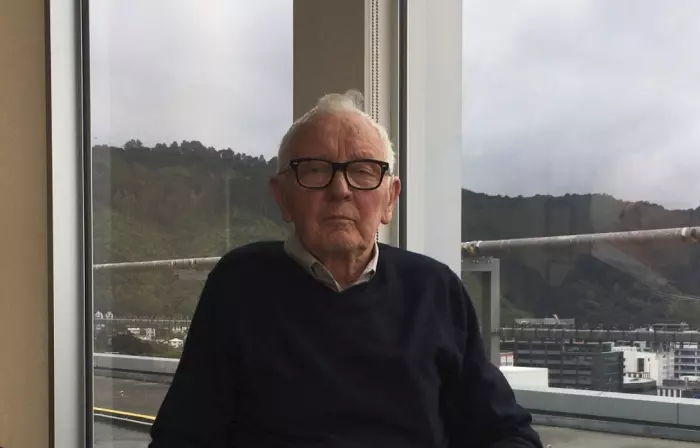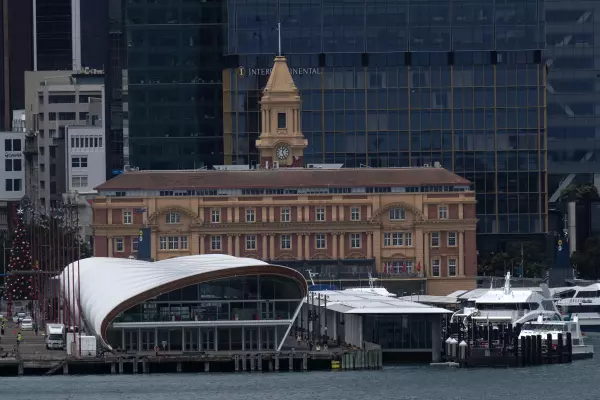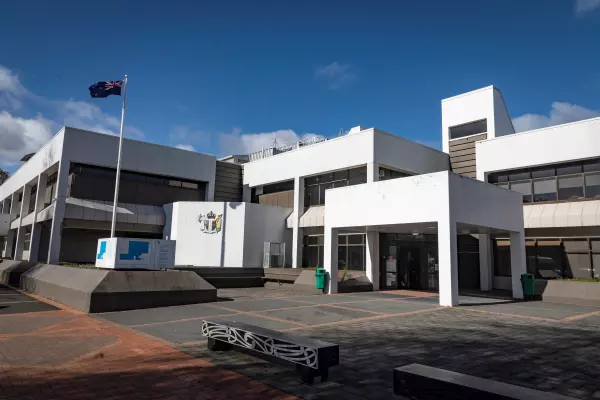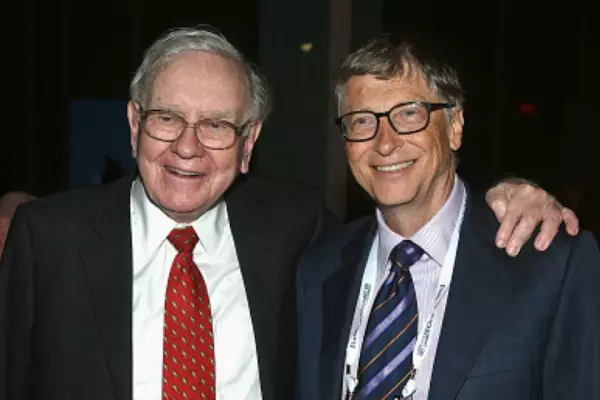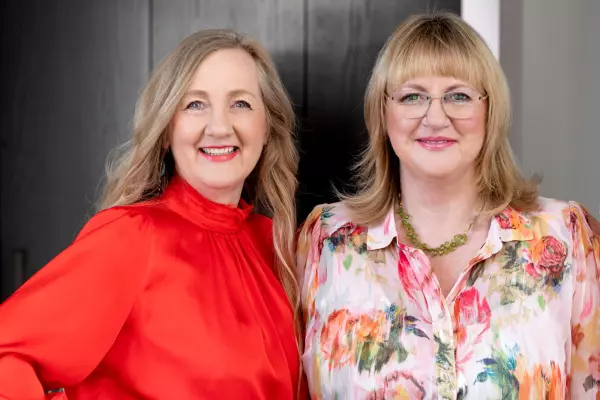In late March, Mark Dunajtschik appeared at a simple ceremony marking the handover of a new children’s hospital in Wellington. The 86-year-old and his long-term partner Dorothy Spotswood (“We are partners in business and life,” Dunajtschik says), lifted a red cloth covering a plaque bearing their names – a fitting way to mark the more than $50 million the Wellington property developer gave to build the new facility.
When his gift was announced in 2017, then prime minister Bill English called it an extraordinary act of generosity and a once-in-a-lifetime event.
Dunajtschik, who made his fortune amassing one of the largest commercial property portfolios in the capital, became involved in the project following a conversation with a former colleague and the chair of the Wellington Hospitals Foundation, Bill Day.
“They approached me to start with for a donation,” he says. “But in the conversation, it morphed into the fact that I may as well pay for the lot.”
So, he did.
BusinessDesk meets with Dunajtschik at his office on the 26th floor of HSBC Tower, a property he used to own on Lambton Quay.
As the wind whines against the windows, which look out over the CBD and the rain-flecked harbour, Dunajtschik relays an anecdote that speaks to his pragmatic, hands-on approach to development.
“It’s not the whole top floor,” he says of his office, a simple space with an analogue clock on the wall and a landline on a small side table. “It’s just a small area which I physically built with my own hands on top of the building.”
There are paintings hanging on the walls, including a landscape of southern mountains. It’s nice, I remark, does it have any significance?
“It’s just a painting,” Dunajtschik says. It’s not that he’s a philistine – the philanthropist was one of the first private donors to the Michael Fowler Centre – but he prefers to put his money towards more practical causes. He was once asked to fund what he calls a series of fancy artworks beside a motorway coming into Wellington.
“I had no sympathy for that,” he says. “I like to see my wealth spent on practical, functional purposes.”
Blessed are the healthy
As we meet, the biggest land war since World War II is under way in Europe: the bloody Russian invasion of Ukraine. When I ask about it, Dunajtschik says he sympathises with the Ukrainians and their suffering.
“I went through exactly the same experience that people are now going through in Mariupol,” he says, referring to the besieged Ukrainian city.
“All the fighting and the isolation and the lack of food and the lack of housing or safety.”
Dunajtschik was born in former Yugoslavia in 1935. Between the ages of 9 and 12, he was imprisoned in a concentration camp in Knicanin. Ethnically German, he and his family were rounded up as Marshal Tito swept to power, aided by the Soviet Union.
“I don’t like to expand,” he says. “It was simply retaliation.”
After their time in the camp, Dunajtschik and his family fled to the Black Forest in Germany. His parents settled there, but the young Dunajtschik went to Reutlingen, a city in the southwest, to study tool making. Accommodation was scarce after the war, so he ended up staying in a home for people with physical and mental disabilities, an experience that had a profound impact on him and set in train a future of charitable giving.
“That made me appreciate that if you have a functioning, healthy body and mind, you’re blessed,” he says. “And people that are physically and mentally handicapped, they need to be supported.”
After working and saving in Germany, Dunajtschik moved to Canada. From there, he travelled to South America, Australia and New Zealand, arriving in Wellington in 1958.
After returning to Europe, Dunajtschik decided NZ was where he wanted to settle. When he came back, he set up Precision Grinders, a company servicing and manufacturing tungsten carbide tools, and met Spotswood.
Dunajtschik sold the company to his nephew in 1987. As the Property Council of NZ put it in 2020 when it awarded him its most prestigious award, the former tool maker took to property developing as a hobby – and he proved enormously adept at it.
As well as building his own commercial buildings, like the Asteron Centre, Dunajtschik bought and upgraded dozens of buildings throughout Wellington, amassing a fortune in the process.
To him, other commercial property managers are like call centres – their tenants call them to fix something, and they call a tradesperson. Dunajtschik does it himself.
“It usually takes less time to do the job than you spend on the phone,” he says.
Giving is relative
Dunajtschik gave more than $50m to the children’s hospital. Does he have any idea how much he’s given over the course of his career? No, he says. And besides, it’s all relative.
In the 1970s, he supported the late Peter Button start what became the Life Flight Trust, a charity providing air ambulance services. In retrospect, he says the funding he gave brought him perilously close to bankruptcy.
“The sacrifice I made then, even though it was only close to a million dollars, that sacrifice was more than $50m now.
“It’s relative to what you have and how much effort, or how much impact, it has on the rest of your capital.”
Because of his origins and the hardship he went through as a youth, Dunajtschik says he understands the need that exists, and how blessed he is to have wealth.
As well as the children’s hospital, BusinessDesk revealed last year the philanthropist made an offer to fund a new mental health unit in the Hutt Valley.
The existing facility, Te Whare Ahuru, is among the worst in the country.
Dunajtschik doesn’t want to talk about it, though. Negotiations are still ongoing, he says.
On the table between us is a report from disability services provider Hōhepa. Spotswood, Dunajtschik says, is focused on supporting the organisation to develop its accommodation at Paraparaumu.
When I ask whether other wealthy New Zealanders should be giving more, Dunajtschik says it’s an individual decision. He and Spotswood don’t have children, so they don’t have the temptation to leave their wealth to them, he says.
“We can’t take it with us, anyway.”
Being able to enjoy the fruits of his philanthropy motivates him to give while he’s alive, Dunajtschik says.
“But now, of course, as the time comes when I won’t be able to enjoy it, I might as well do it while I can.”


